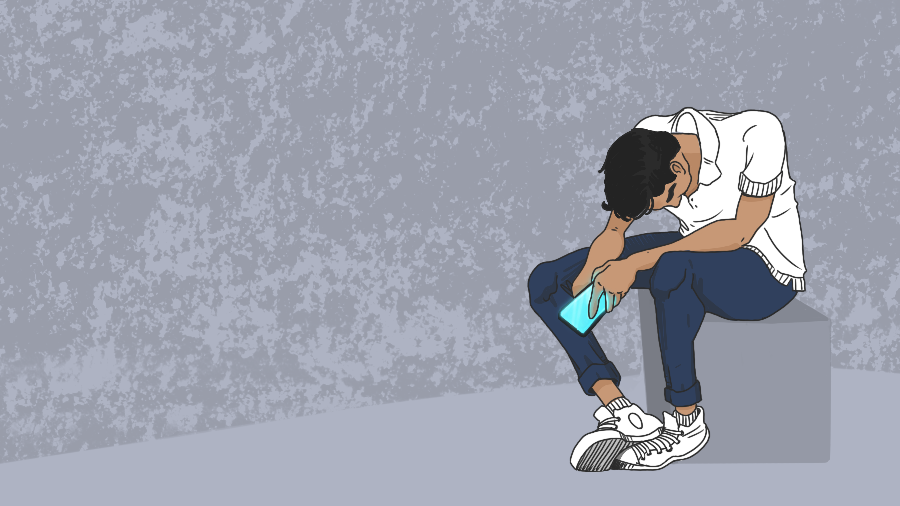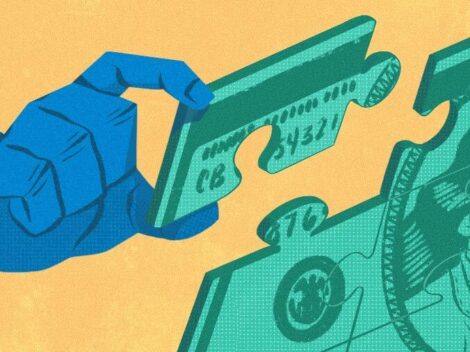Editor’s Note: This is the first in a three-part series series on how loneliness impacts all aspects of the startup world, from founders to the technology that creates and combats the condition.
Thirty minutes of meditation, fifteen minutes of a pep talk, and then a silent prayer service solely dedicated to founders seeking funding.
Founder Meditation was a weekly support group that Jonathan TranPham, the CEO of Reflect, found comfort in after a potential co-founder stepped down for personal reasons.
“We’d have to explain what’s underneath us, why we’re tired,” said TranPham on a recent Friday at Bluestone Lane. The meditation room was often full of other founders chatting about topics regarding how much time they spend with their spouses and differences in salary.
It was about “sharing in the suffering” and feeling together, explained TranPham.
Then, after about three years, Founder Meditation shut down. According to TranPham, it was because the class got too popular, but there wasn’t enough space to host all the founders.
Subscribe to the Crunchbase Daily
TranPham still ended up starting a company, Reflect, to help people match with therapists that understand them. Yet even with a business targeted toward mental health, TranPham feels the pang of loneliness from time to time.
One expert defines loneliness as a distressing feeling that comes when a person’s needs are not being met by the quality or quantity of social relationships. Another says that loneliness impacts one in three people across America.
Entrepreneurs, who are more apt than a regular person to suffer from depression, bi-polar disorder, and suicidal thoughts, are no exception.
Vulnerability As A Solution
Sahil Lavingia, founder of Gumroad, a marketplace for digital goods, said on Twitter that friendship takes vulnerability and time. He added: “If loneliness is epidemic, this seems like an important part of the fix.”
Making friends seems to be a problem for adults everywhere.
Are we uncomfortable with spending time with people just because? Is it a base human thing to optimize how we spend our time, and with who?
Maybe being vulnerable comes up against evolutionary instinct.
— Sahil Lavingia (@shl) August 11, 2019
But that solution is complicated when applied to startup executives.
“Being a founder in itself is lonely, because you’re competing against so many other people,” First Round Capital’s Alex Marshall told me in a recent interview. Due to that competition, “it’s hard for leadership to be vulnerable.”
For Lolita Taub, chief of staff at Catalyte, an artificial intelligence startup, and Josh Taub, the vice president of product at Swyfft, a home insurance startup, a move to Baltimore presented a fresh opportunity to make friends.
The couple chose to live in a lifestyle apartment building, featuring a one-acre amenity floor equipped with an open concept kitchen, hang out spaces, outdoor vegetable garden, pool, and double-sided TV.
So far, they’ve started “loose friendships over mixology and aromatherapy classes” hosted by their building. Movie night and late-night swim events are also on their calendars.
They said none of these activities feels forced. Many residents, according to the duo, are looking for the same experience.
For Optimization Sake
Cameron Sepah, a licensed clinical psychologist and professor at UCSF Medical School, and formerly head of Clinical Innovation at Omada Health, works with tech founders and empathizes with clients since he was once a startup founder himself. He compared entrepreneurs to Olympic athletes: both groups need a coach to train their muscles while they compete, not just after they fail.
Most of Sepah’s clientele comes in search of “performance optimization.” That’s a fancy way of saying that some executives are realizing that working themselves to the bone is not productive. Coming to a psychologist for “optimization” feels like a nod to the hustle culture mentality, which Sepah said can generally be a positive mindset if it’s balanced.
“My clients are high functioning, compared to the relative demographic of people I have seen in this community,” he said. Before working with founders, Sepah worked with veterans in a hospital where many patients only sought help when symptoms became uncontrollable. He doesn’t advertise for his services. All of his patients come to him, often through referrals, because “there’s a shortage of people doing this who are actually good at it.”
That said, when he does sit across from a startup founder who is lonely, Sepah tells them he’s not going to change that state of mind.
“I wouldn’t try to fix their loneliness,” he said. “Those are normal human emotions and probably evolutionarily we evolved these for a reason—they are useful signals to tell us something is wrong.”
Instead of numbing or distracting the negative feelings of loneliness or sadness, Sepah urges founders to be critical about the crutches they use to avoid loneliness, such as drinking, social media, hyper-networking, or long work hours.
With this focus, his conversation with a distressed founder becomes less about how to cure loneliness, and more about how they can find find inspiration and a home within it.
Featured image by Dom Guzman.

Stay up to date with recent funding rounds, acquisitions, and more with the Crunchbase Daily.


![Illustration of AI/Human teamwork. [Dom Guzman]](https://news.crunchbase.com/wp-content/uploads/AI-cowork-470x352.jpg)


![Illustration of a guy watering plants with a blocked hose - Global [Dom Guzman]](https://news.crunchbase.com/wp-content/uploads/quarterly-global-3-300x168.jpg)
67.1K Followers